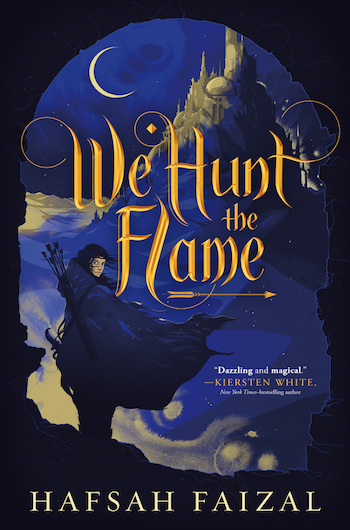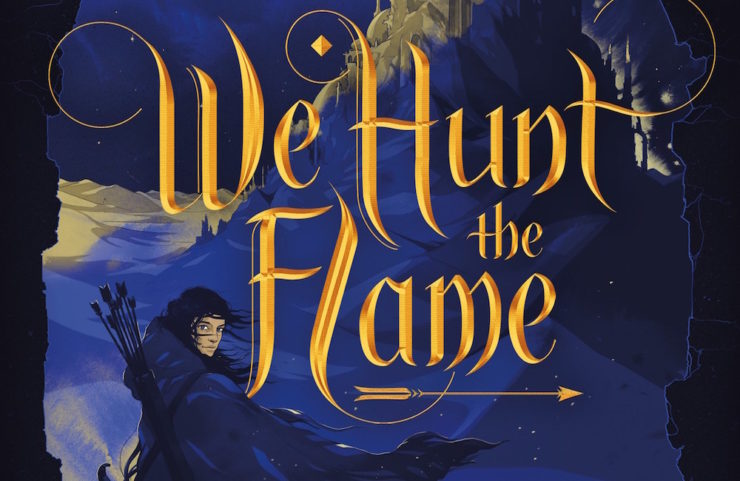It’s always a funny thing when an author says they’ve been writing ever since they could hold a pencil, or that they’ve always adored books.
Because I, someone who now lives and breathes in the literary world, hated both.
It wasn’t that I didn’t like to read, it had more to do with the question of why read when I could be climbing our rickety treehouse and creating adventures of my own? Now, older and wiser—but still not wise enough—I’ve had some time to ruminate upon my peculiar existence, and I like to think I’ve puzzled out an answer.
People would say, “I read to find myself,” yet I only ever read to lose myself, because there was no way I could find myself in a world of corsets and wine, of carriages and top hats. I’m aware that few people can relate to any of those ancient contraptions, which is likely why I always thought fantasy was more palatable than contemporary, with its beach parties and locker rooms, red solo cups and school drama. More than any other genre, fiction rooted in our world was always a harsh reminder that I was not the perceived normal.
You see, I’m the firstborn of devout Muslim immigrants. One of them was a Montessori teacher who used to be in the school band, the other was a black belt who also loved judo. All this to say, they were religious, yes, but they weren’t removed from the world, and so when I came around, months after their marriage and half a decade before the first of my siblings, my parents decided their children would be the same. They made sure Islam was a fundamental part of our lives, while also ensuring we were versed in the latest pop culture, dressed in the latest fashions, and so on and so on. “As American as can be”—a construct to be broken down at another time.
But even with my fresh-pressed jeans and knowledge of the latest Harry Potter, I was still different. I had a name no one could pronounce. I had a mom who dressed like a ninja, the dad with the big beard and almost-British accent. I never ate from the school cafeteria, and my hair was always bound in the same tight braid every day, leading everyone to think I never undid or redid my hair. They didn’t know that loose hair, according to my mother, hindered studies.
These weren’t all religious things that made me different, they were cultural, too, like the oddity of my hair. And that in itself, the many facets of me, was yet another strange notion to grasp. It was hard for anyone to understand that my name was Arabic, that my parents—both born during the time when Sri Lanka was still under British rule—spoke a Sri Lankan tongue to each other but English to their children. Understanding meant accepting the fact that people could have connections to multiple countries and languages and cultures. It was just too perplexing for people to wrap their heads around.
Why understand what a person is when you can take the easy route and just label them “different?”
When I hit puberty, I began wearing the niqab like my mom, after years of begging her to give me a black veil of my own. Months later, we left always-hip Los Angeles and moved (back) to Florida because of my dad’s job. In the city where we lived, the schools weren’t so great for a veiled girl like me, so I started homeschooling.
So while my parents did all they could to make sure we were as normal as can be, in the end, it didn’t matter what I did or what I knew. The world would always remind me that as far as outward appearances go, no, Hafsah, you’re not normal.
I grew accustomed to it. Not being normal became my normal. But if it was a truth I couldn’t avoid during every moment of my every waking hour, younger-me didn’t think I needed yet another reminder by reading books.
Fast forward some years to when I began writing We Hunt the Flame. It was my first in many ways, despite having written four other manuscripts. It was my first novel told in third person, my first in the past tense, my first fantasy. And armed with the idea that I had to write to fit a normal I didn’t belong to, I began crafting the setting and the characters. It was deeply Eurocentric, which felt normal. It required hours of researching Welsh names, which felt normal.
But it also felt wrong. I was writing chapter after chapter with this constant nagging that something wasn’t right, but I kept pushing until I hit a third of the story and couldn’t take it any longer.
So I stopped.
I didn’t stop working on the story, however. As a designer, and a very visual person by nature, I thought it would help to sketch my book’s map, using real world maps for reference. The structure of my book’s world—an island surrounded by the mainland—fit almost identically with that of the Mediterranean. I remember it as an almost breathless moment. My eyes strayed further south, to Arabia, and I had one startling realization.
This was my story. What if I could both lose myself and find myself?
It was a scary realization. This was before the push for diverse books, during a time when stories infused by other cultures were written by authors who didn’t have to worry about cutting themselves open and laying their souls bare within the alluring stack of pages that form a book.
At the same time, it was freeing, too. Why was I trying to make my story the perceived normal? Why not make it feel like a normal I aligned with? When a portion of one’s brain wakes up with the instruction to stop conforming to something they aren’t, one must listen. There was more to it than that, though. I knew that almost every story coming out of the world of Arabia was demonized or romanticized in some way. It was rare to find adventures where myth was myth and the desert felt like home.
Because that’s what it is for thousands and thousands of people: home. What if I could give readers like myself a book set in a version of Arabia that wasn’t fueled by terrorism, twisted by forced marriage, or decorated with magical genies? A book where the heroine could be a girl who knows of bakhour and the difference between dates. Where the hero could be a boy who understands the beauty of the moon, who knows the feel of the language upon his tongue. Where their hard-to-pronounce names are normal to them even if they’re difficult for anyone else, and their clothes don’t serve as reminders to how different they were.
Buy the Book


We Hunt the Flame
So I opened up a blank document and started afresh, but I remember writing word after word with a sense of fear. A roaring that followed each chapter, a worry entangled with a deeper sense of peace that I chose to ignore. I was touching upon something that would be appreciated, yet analyzed, by people who shared the culture. I was aware it would even be analyzed by others—outsiders—who already had set perceptions about the region.
Slowly but surely, more diverse fantasies began trickling into the world, cementing my new path, like We Need Diverse Books’ president Ellen Oh’s Prophecy and Roshani Chokshi’s The Star-Touched Queen. With every new release, book deal announcement, and promise of diverse fantasy, I felt a little more okay. A little more confident.
There were other stories I wanted to tell, too, and I often told myself that if We Hunt the Flame worked out, my next manuscript would be a bit closer to me—with characters of Sri Lankan descent—and my next would be even closer—with an American Muslim.
Besides, We Hunt the Flame was going to be my last attempt at publication, and it eventually became a question of why not go all in. Why not make a difference when I had the chance. I didn’t want to give the world an issue book. I wasn’t trying to tackle politics or religious misconceptions, despite how deeply entwined my existence was with the fallacies. I wasn’t trying to make a point. I just wanted a story, an adventure.
I wanted a new normal—so I gave it to myself.
Hafsah Faizal is an American Muslim and brand designer. She’s the founder of IceyDesigns, where she creates websites for authors and beauteous goodies for everyone else. When she’s not writing, she can be found dreaming up her next design, deciding between Assassin’s Creed and Skyrim, or traversing the world. Born in Florida and raised in California, she now resides in Texas with her family and a library of books waiting to be devoured. We Hunt the Flame is her first novel.











Well it sounds like an interesting book and I’ve added myself to the library hold list. I’m sorry school had an extra level of suck for you but remember “normal” is overrated.
Congrats and Mabrook on your debut, Hafsah! So proud of you!
I’m glad to see more Islam-inspired fantasy novels making their way to publication. I will have to check this out.
Also, for the mods or editors: Hafsah’s first name is misspelled up top by the title. Hafash sounds like a cool name too, but it is not her name.
@3: It’s been updated–thank you!
Sounds AMAZING, Ms. Faizal. I just put it on my hold list at the library!
This sounds like a wonderful book – I’ve just picked it up on Kindle, and will check out the other two titles you mentioned as well :-)
Congrats on the publication! I’ve been waiting, not so patiently, to read this book. :) Thank you for giving us some insight into your process.
“I’M going on an adventure! “
Such a great line. More adventures please. As I hit 50 I think I’ve read every variation of the eurocentric adventures in fantasy and Scifi.
Kinda tired of em. New worlds, stories and visions from anywhere and everywhere. Yes please.
New voices? A big ole Meg Ryan YES!
It’d be so nice to not know every step of my next adventure before I go. Road not travelled and all that. Plus so awesome to know how many more kids can go off on an adventure where they can see themselves reflected in all those strange new worlds.